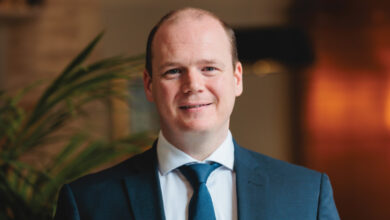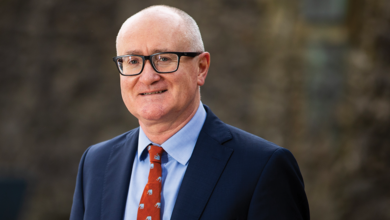Delivering change in health
 Hilary Thomas highlights how our health and social care system is already empowering patients and carers, setting an example for the rest of the UK and a good precedent for local reform.
Hilary Thomas highlights how our health and social care system is already empowering patients and carers, setting an example for the rest of the UK and a good precedent for local reform.
Don Berwick, the legendary patient safety guru who led the recent report ‘A promise to learn – a commitment to act’, has set out four guiding principles. One of these is to engage, empower and hear patients and carers throughout the entire system, at all times. In this regard Northern Ireland is setting an example for Great Britain to follow.
Transforming Your Care was published at the end of 2011. In July 2012, the Population Strategic Implementation plans outlined how the Health and Social Care Board proposed to make changes in response to the report. This has seeded a number of innovative developments – for example the Belfast Health and Social Care Trust has developed a Community Urgent Care Team with a strong multi-disciplinary focus on rehabilitative care which includes nursing, medical, physiotherapy and occupational therapy.
Whilst we should savour Berwick’s description of the NHS as a ‘globally important treasure’, it is how the whole ‘system’ responds to demographic and disease challenges going forward which will determine its sustainability. Northern Ireland is looking at the system rather than the buildings and the proposals in Vision to Action – action being the operative word here – include older people, long-term conditions and palliative and end of life care. Historically these have been Cinderellas in health but it is increasingly apparent that as we age – and become increasingly likely to develop, not one but multiple, long-term conditions – optimising the management of these conditions is increasingly important.
The Minister’s core vision for the system is to prevent unnecessary hospital visits and help ensure that patients are cared for closer to home. His clear view is that the ‘Hospital at Home’ service provides active treatment by healthcare professionals in the patient’s own home for a condition that would otherwise require acute hospital in-patient care. It is this ‘without walls’ approach which will drive our approach to the future of health and social care services.
Investment has been targeted to build the infrastructure to make this a reality. The use of telepresence has been promoted and suggests that the population of Northern Ireland are more familiar with telehealth and telemedicine as solutions to delivering healthcare in more rural areas than their counterparts in Great Britain.
A recent KPMG survey showed that only 36 per cent of patients in Great Britain would be comfortable using technology as an alternative to face-to-face consultation. This opportunity to introduce alternative models of care for older people which deliver more suitably targeted care – and maintain independence wherever possible – creates the possibility of a more sustainable, affordable and patient-centric system.
Of the over 2,200 responses to the consultation, the overwhelming majority believe the Northern Ireland health service ‘must change to deliver the care we require’. That degree of public engagement and understanding is a very powerful base on which to build. As the 17 Integrated Care Partnerships (ICPs) are developed and established, the word integration could become a ‘weasel word’ in the lexicon of healthcare. It has become synonymous with the solution to our transition from a 20th century biomedical model of care to a 21st century system.
Patients don’t necessarily understand what healthcare professionals and managers mean by integration – for them it is about seamless, coordinated care. The 17 ICPs – led by clinicians and built around populations of 100,000 people – are an opportunity for Northern Ireland to lead the way in this important leap from a semantic to a real world solution. Effective implementation will be key to success but the journey of the past two years and the building blocks which are already in place are reasons to be cheerful.
 Hilary Thomas, Partner, KPMG
Hilary Thomas, Partner, KPMG
Tel: 020 7311 4154
Email: hilary.thomas@kpmg.co.uk





